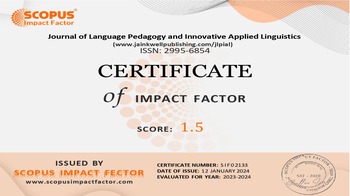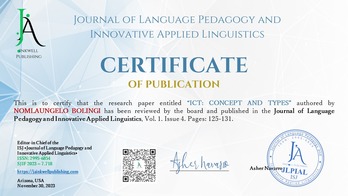Theoretical Approaches to Developing Professional Ethics in Future Physical Education Teachers
DOI:
https://doi.org/10.1997/66bt7877Keywords:
Professional ethics, physical education teachers, ethical competence, teacher education, reflective practice, ethical pedagogy, pedagogical theory, teacher professionalismAbstract
This article comprehensively examines the theoretical foundations and approaches for developing professional ethics among future physical education teachers. It explores various pedagogical theories, educational practices, and ethical frameworks that collectively contribute to shaping ethically responsible educators. Given the integral role physical education teachers play in influencing student values, attitudes, and behaviors, fostering ethical competence during teacher preparation is vital. The discussion includes an analysis of contemporary ethical challenges, effective pedagogical strategies, and the role of reflective practice and mentorship in cultivating ethical professionalism.
Downloads
References
Aristotle. (2009). Nicomachean Ethics. Oxford University Press.
Bandura, A. (1977). Social Learning Theory. Englewood Cliffs, NJ: Prentice Hall.
Schön, D. A. (1983). The Reflective Practitioner: How Professionals Think in Action. Basic Books.
Darling-Hammond, L., & Bransford, J. (Eds.). (2005). Preparing Teachers for a Changing World: What Teachers Should Learn and Be Able to Do. Jossey-Bass.
Rest, J. R., Narvaez, D., Bebeau, M. J., & Thoma, S. J. (1999). Postconventional Moral Thinking: A Neo-Kohlbergian Approach. Psychology Press.
Nash, R. J. (2002). Real World Ethics: Frameworks for Educators and Human Service Professionals. Teachers College Press.
UNESCO. (2015). Quality Physical Education: Guidelines for Policy-Makers. Paris: UNESCO.
Strike, K. A., & Soltis, J. F. (2004). The Ethics of Teaching. Teachers College Press.
Downloads
Published
Issue
Section
License
Copyright (c) 2025 Khasan Normatov (Author)

This work is licensed under a Creative Commons Attribution 4.0 International License.












